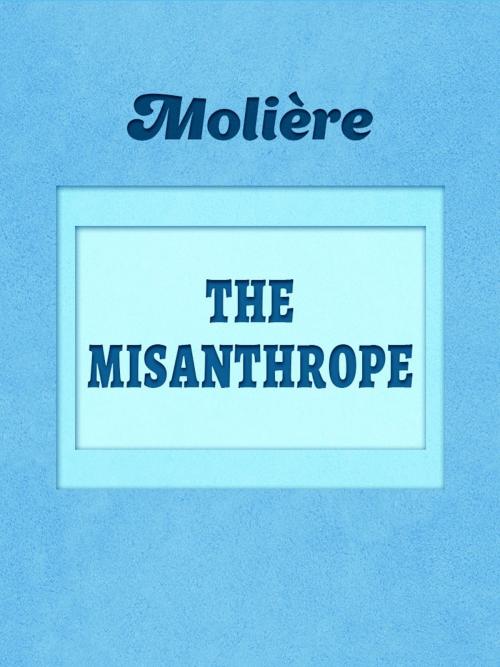| Author: | Molière | ISBN: | 1230000476508 |
| Publisher: | Media Galaxy | Publication: | June 9, 2015 |
| Imprint: | Language: | English |
| Author: | Molière |
| ISBN: | 1230000476508 |
| Publisher: | Media Galaxy |
| Publication: | June 9, 2015 |
| Imprint: | |
| Language: | English |
Moliere was a pseudonym of Jean-Baptiste Poquelin (1622-167), a French playwright who worked primarily in the comedy genre. He is considered to be the founding father of the classical comedy. He was an actor himself and also ran a theatre named 'Troupe de Moliere'. Jean-Baptiste was brought up in noble bourgeois family and was given brilliant education. Nevertheless, a career in the field of law didn't attract him and he became an actor. Moliere's comedies often containes satire on the aristocracy and clergy of those times. 'The Misanthrope' is one of the most famous works by Moliere and a bright example of the 'comedy of manners'. The central figure of the story is Alceste, a man who tends to criticise everyone around him including himsel. He falls in love with Celimene, although he doesn't like a lot of things in her character. This work differed from the usual satires of that times as Moliere used not flat characters but dynamic one to depict the flaws that the majority of the people possesses.
Moliere was a pseudonym of Jean-Baptiste Poquelin (1622-167), a French playwright who worked primarily in the comedy genre. He is considered to be the founding father of the classical comedy. He was an actor himself and also ran a theatre named 'Troupe de Moliere'. Jean-Baptiste was brought up in noble bourgeois family and was given brilliant education. Nevertheless, a career in the field of law didn't attract him and he became an actor. Moliere's comedies often containes satire on the aristocracy and clergy of those times. 'The Misanthrope' is one of the most famous works by Moliere and a bright example of the 'comedy of manners'. The central figure of the story is Alceste, a man who tends to criticise everyone around him including himsel. He falls in love with Celimene, although he doesn't like a lot of things in her character. This work differed from the usual satires of that times as Moliere used not flat characters but dynamic one to depict the flaws that the majority of the people possesses.















